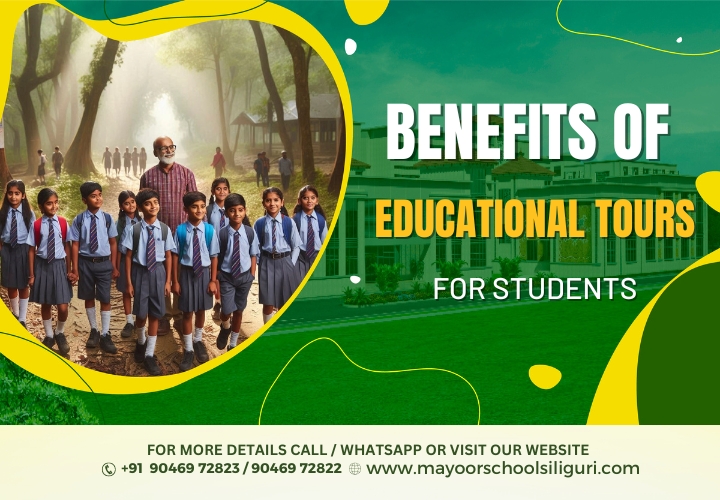
Educational tours offer students a unique blend of learning and adventure, combining academic insights with real-world experiences. These excursions go beyond the conventional classroom setup, allowing students to gain a broader perspective and deeper understanding of the subjects they study.
Educational tours provide a dynamic learning environment where students can engage with the material in a tangible way. Visiting historical sites, museums, and scientific institutions allows them to see, touch, and experience what they have learned in textbooks. This experiential learning activities solidifies their knowledge and makes learning more impactful and memorable.
Traveling to different places expose students to diverse cultures, languages, and lifestyles. This exposure fosters cultural awareness and sensitivity, broadening their horizons and teaching them to appreciate and respect differences. It also encourages open-mindedness and adaptability, essential skills in our increasingly globalized world.
Educational tours often involve group activities that require teamwork, communication, and cooperation. Students learn to work together, share responsibilities, and support each other, enhancing their social skills and building strong bonds with their peers. These experiences also teach them conflict resolution and leadership skills, which are valuable in all areas of life.
Stepping out of the traditional classroom setting can reignite students' enthusiasm for learning. The learning through travel adds new experiences which make them more engaged and motivated to participate in educational activities. This renewed interest can translate into better academic performance and a more positive attitude towards their studies.
Educational tours offer students the opportunity to apply theoretical knowledge in practical situations. For instance, a visit to a science museum can demonstrate the real-life applications of scientific principles, while a trip to a historical site can bring history lessons to life. This practical application helps students understand the relevance of what they are learning and see its value in everyday life.
Navigating new environments and dealing with unexpected situations during educational tours challenge students to think critically and solve problems on the go. They learn to make decisions, adapt to changing circumstances, and find creative solutions, skills that are essential for personal and professional success.
Educational tours can provide valuable insights into potential career paths. Visiting industries, research centers, or universities can inspire students and help them understand various professions. Learning outside the classroom guide their future educational and career choices, providing clarity and motivation to pursue their goals.
Beyond the educational benefits, tours offer students unforgettable experiences that contribute to their personal growth. They gain independence, self-confidence, and a sense of responsibility. The challenges and adventures they encounter help them develop resilience and a sense of achievement, shaping them into well-rounded individuals.
Educational tours are a vital part of a well-rounded education, offering students opportunities to learn beyond the confines of a classroom. They provide a rich tapestry of experiences that enhance academic knowledge, foster personal growth, and prepare students for the complexities of the modern world. By investing in educational tours, the benefits of educational tours for students help them develop a lifelong love for learning and exploration.
Read More Article: The New Imperative: Understanding Social Emotional Learning (SEL) Today